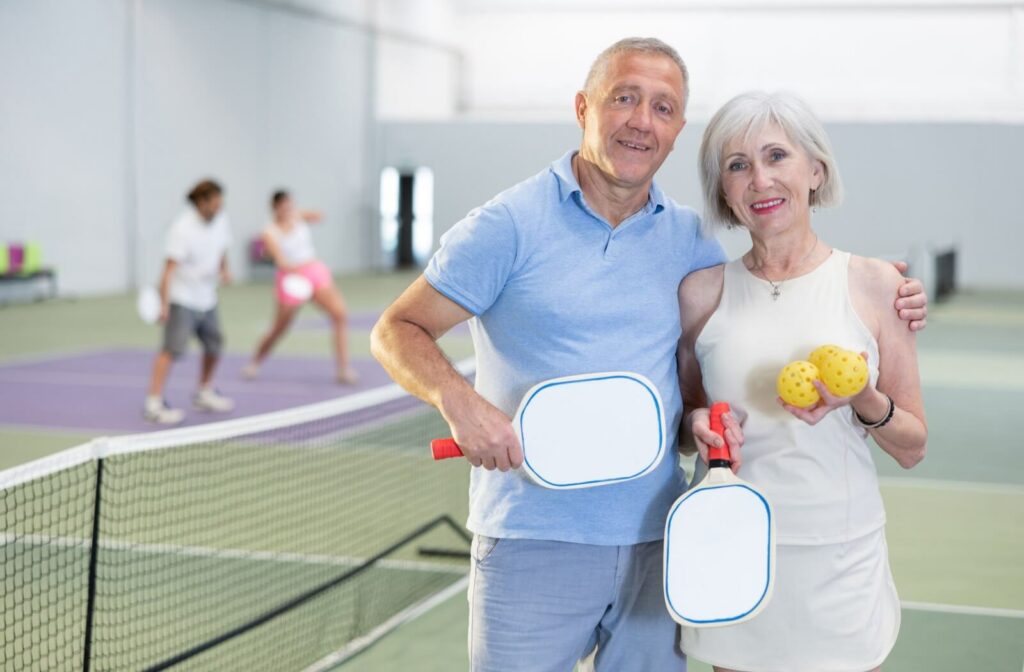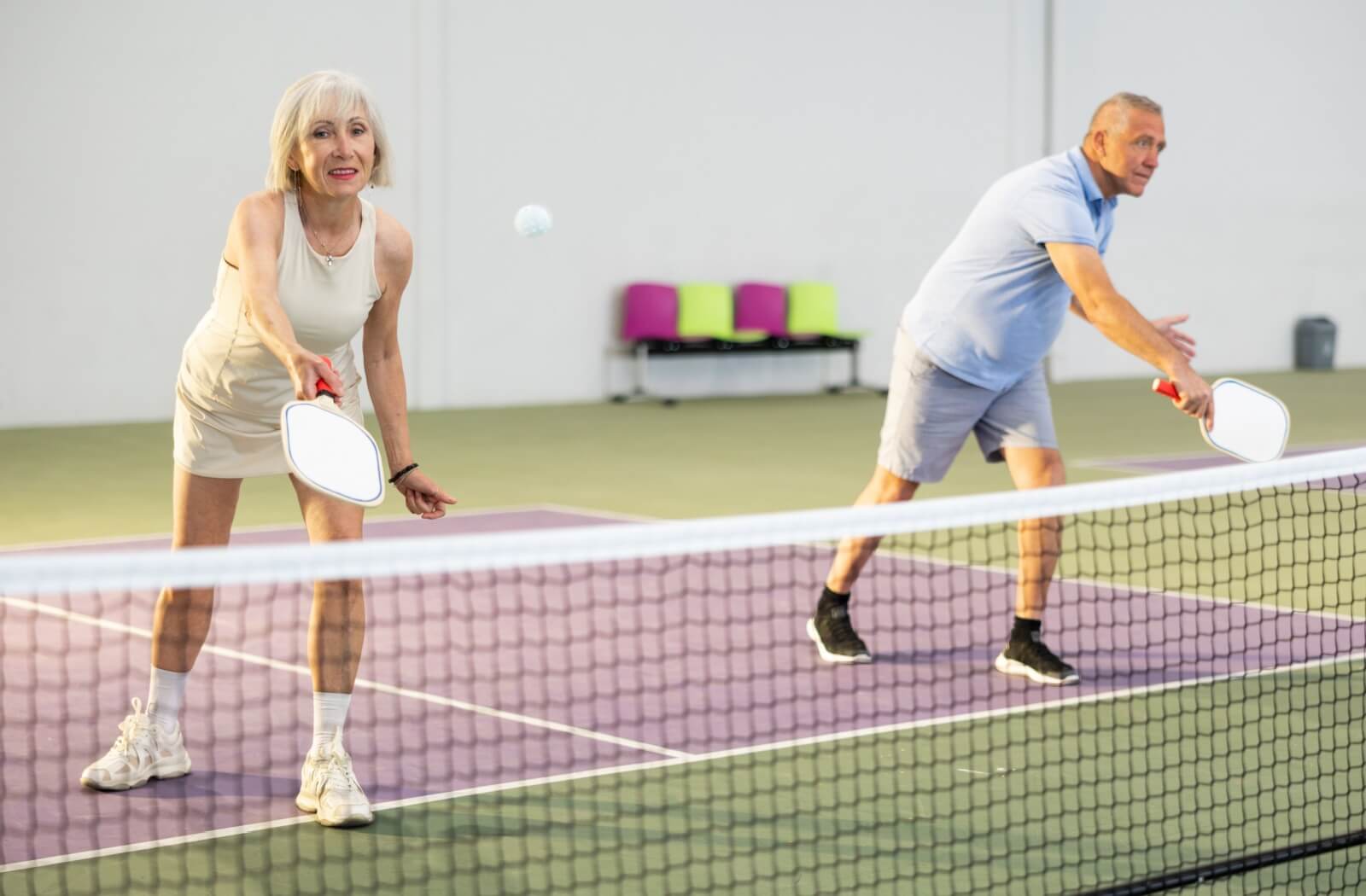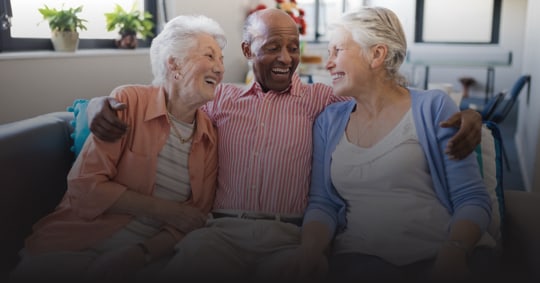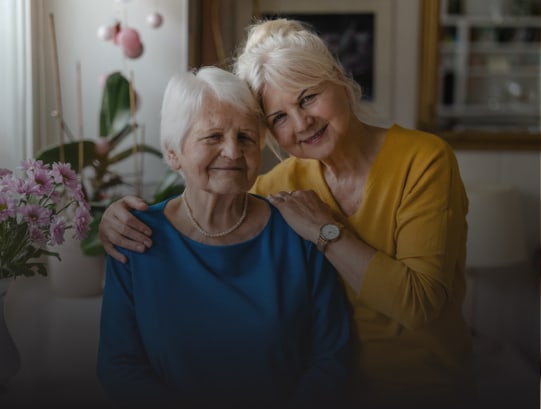Pickleball—an unusual name for an increasingly popular sport. Using a paddle and combining parts of tennis, badminton, and ping-pong, pickleball has captured the interest of many. But is pickleball good for seniors?
The answer is yes! Pickleball is an inclusive and social sport and promotes exercise. Whether you live alone or in a community, maintaining an active lifestyle surrounded by like-minded people is a key part to a fulfilling life.
What Is Pickleball?
Pickleball is a paddle sport played on a court similar to a badminton court but uses a net and equipment akin to tennis. It’s played with a paddle and a plastic ball with holes, making it accessible and easy for people of all ages. The game’s simplicity and low-impact nature make it appealing to older adults compared to other high-energy and high-force racket sports.
How to Play Pickleball?
Pickleball is a singles or doubles sport. Here is how to play pickleball:
- The game starts with a diagonal, underhand serve from the right side of the court.
- The ball must bounce once on each side of the net (two-bounce rule).
- After that, players can hit the ball in the air or after a single bounce (volleying).
- Volleying continues until someone double bounces, hits the pickleball out of bounds, or hits the pickleball into the no-volley zone.
- Only the serving team scores points in pickleball. The serve goes to the opposing team if the server fails to score.
- A team needs 11 points to win and be ahead by at least 2 points.
Why Pickleball Is Good for Seniors
There are several health benefits of pickleball for older adults.
Physical Benefits
Pickleball is a low-impact cardiovascular sport. Regular physical activity, like pickleball, is an excellent cardiovascular workout that can:
- Help maintain a healthy weight
- Reduce cardiovascular and diabetes risks
- Strengthen bones
- Build up muscles and endurance
Pickleball involves a range of motions, from bending and stretching to quick lateral movements. It can help maintain or even improve lower body function, such as mobility in people with knee arthritis.
Mental Health Benefits
The mental health benefits of pickleball include stress reduction and improved mental health, like anxiety. Physical activity is well-known for its stress-busting benefits. Older adults over 50 years who play pickleball showed improvements in a sense of well-being and a reduction in stress and depression.
Pickleball also improves cognitive function. A regular workout, like pickleball which requires quick thinking, decision-making, and staying alert, improves cognition.
Social Benefits
One of the standout benefits of pickleball is the social interaction it fosters, which can be lacking in other types of sports or exercises. The sport is often played in doubles, encouraging teamwork and camaraderie. Older adults can socialize and stay connected with others, combating feelings of loneliness and isolation.
Pickleball creates a welcoming and inclusive environment where older adults can meet like-minded individuals. Whether they are new to the sport or seasoned players, everyone has the opportunity to connect and form meaningful relationships.
Beyond just playing the game, pickleball provides a social network. Many communities have clubs and leagues, offering numerous opportunities for social gatherings, events, and communal activities.
The Risks Versus the Benefits of Pickleball
While injury rates are high among older adults who play pickleball, the benefits of playing pickleball outweigh the drawbacks for older players. Injury prevention can help prevent many if not most, pickleball injuries.
Safety Considerations & Adaptations for Seniors

It’s not uncommon that most of the players in pickleball who sustain injuries and are more likely to be injured are older players. Injuries can include strains, sprains, joint pain in wrists, shoulders, knees, and ankles, falls, and fractures. However, here are some strategies and tips to minimize injuries:
- Proper warm-ups: To increase a safe playing experience, older adults should start with a proper warm-up routine for 5 to 10 minutes. Gentle stretching and light aerobic exercises can prepare the body for the physical activity ahead, reducing the risk of injury.
- Cool down: Older adults can also cool down after playing with ice packs.
- Hydration: Consistent hydration during play.
- Use appropriate equipment: Investing in the right equipment can make a significant difference. Lightweight paddles and appropriate footwear designed for court sports can enhance performance and safety.
- Proper technique: How to hold the paddle and hit the ball below the waist can minimize stress on the wrist and the risk of injury.
- Understand personal limits: Listening to one’s body is crucial. Older adults should be aware of their physical limits and avoid rapid movements and sudden stops and starts.
- Rest: Older adults can do this by devoting days of the week to rest with no play.
Personal Well-Being for Older Adults
Pickleball is more than just a fun pastime; it’s a sport that offers numerous benefits for older adults. From improving physical health and cognitive function to fostering social connections, pickleball stands out as an excellent option for older adults looking to stay active and engaged.
If you’re looking for ways to enhance your or a loved one’s fitness and social life, contact Somerby St. Vincent’s One Nineteen to learn how we prioritize residents’ physical, mental, and emotional well-being.











